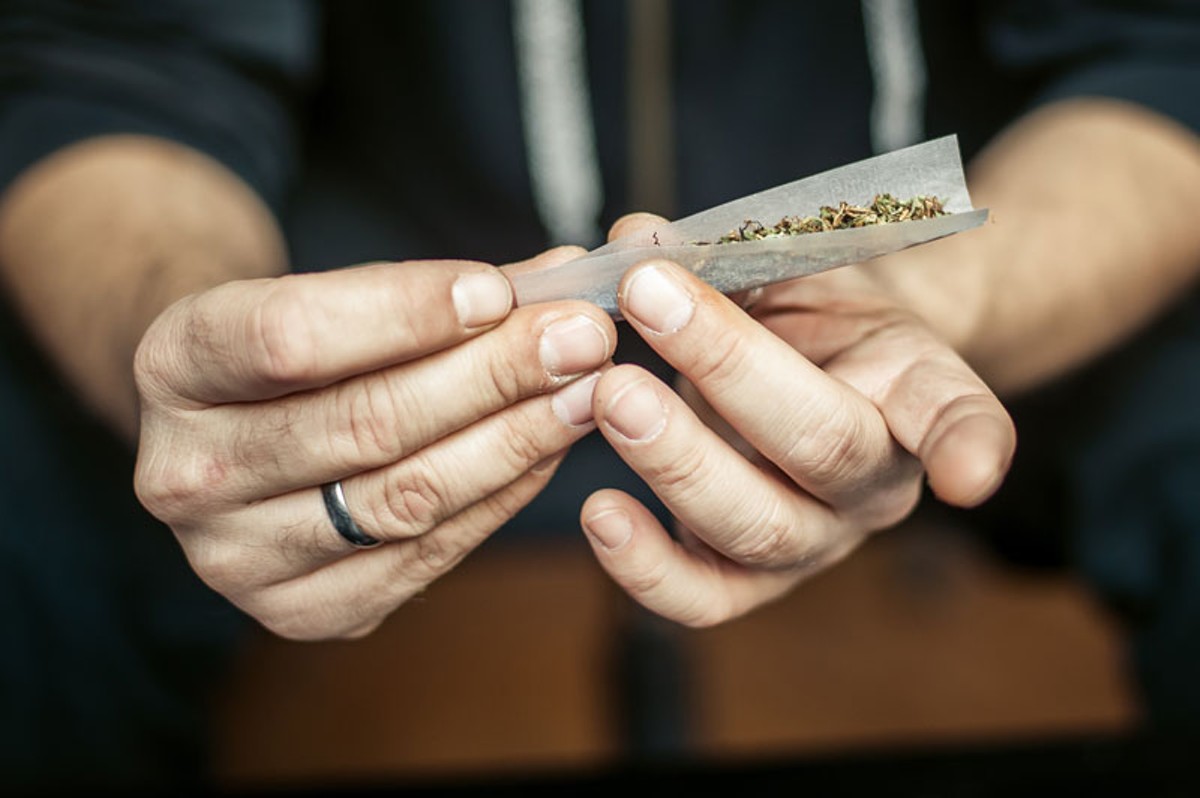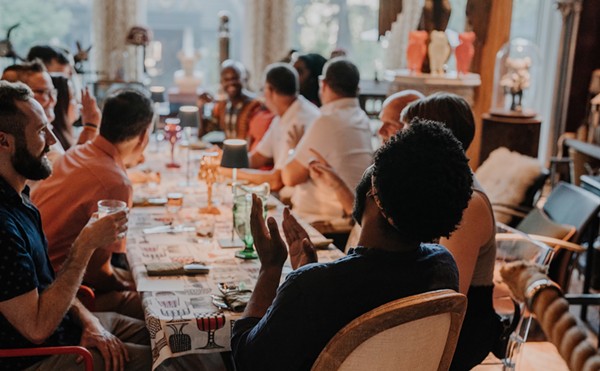The unanswered questions about legal marijuana in Michigan, medical or otherwise, never seem to end.
When is the medical marijuana system really going to be up and running? Will there be a different attitude from state regulators now that there is a new gubernatorial administration and attorney general? Where can we get some adult use, non-medical marijuana? For that matter, when will there be enough of the medical stuff in the system?
One of the biggest questions coming up the past few weeks has been a simple one: "Where can I hang out with my friends and get high other than at my house?" A lot of folks who like marijuana want to be able to use it in a social setting. Folks who hate marijuana don't want to see people using it anywhere.
There are some places around town I've heard about where under certain circumstances one can fire up a bud. The caveat is that like most everything else in the traditional marijuana underground, you can't get in unless you already know the people or someone vouches for you. In essence, it's like it's always been. You gotta know someone.
Folks at the Psychedelic Healing Shack in Detroit are making noises about being a hangout for smokers, but you can't really smoke there — at least for now. It's going to take a legal shaking down about what constitutes a public space and a private club.
It's going to take a while to get this all sorted out. However, the stakes don't seem as high as they once were for public marijuana consumption. "The penalty for that is a civil infraction for using that in a public place," says attorney Matt Abel, executive director of Michigan NORML, of the new adult use law.
Here's something else to know: The marijuana black market is alive and well in Michigan due to a number of reasons. It may even be bigger than it's ever been because the market is mostly local products, not international imports. There are no numbers out there to tell exactly what's going on, but there are circumstances that speak to the situation.
First and foremost is that the black market is how people have been getting marijuana for most of the several decades of prohibition. It's a system built on trust. People know and trust their dealers, and they are in no hurry to change those long-held relationships.
The next reason is the stigma of marijuana use keeps a lot of people from coming out of the closet and becoming registered patients even though they qualify. It's not just the nosy neighbors. It's about having your name on a government list of people who use marijuana. If the legalization trend swings the other way you could be screwed.
Another huge reason for the black market to continue to exist is that the licensing system for medical marijuana seems as though it is set up to squeeze out people who may have broken the law in the past more than it is to make sure people are getting their meds.
"If we're trying to eliminate the illegal market, this is not the way to do it," says Abel. "If we're just trying to reward certain players, they're being quite effective in that, but that's not going to eliminate the illegal market."
What has happened is that caregivers have been producing marijuana this past decade and supplying medical marijuana provisioning centers. Now most provisioning centers have closed, but caregivers have not stopped growing and those "overages" have no legal place to go in the new system. A few weeks ago at a Lansing conference, state Licensing and Regulatory Affairs director Andrew Brisbo admitted that there is no good answer for growers about where their overages have been going. That represents a lot of production power in a state that doesn't want to stop producing.
There was no forgiveness in the licensing process. Hundreds of people and their businesses applied for licenses but dropped their applications when they saw the level of scrutiny their finances would face.
What we have is a class of growers who stepped in to fill a void when the state legislature refused to create a medical marijuana distribution system for eight years after the law was passed. Now many of those same growers have been squeezed out of the medical system. By selling on the black market, some are now putting the squeeze on the medical system by undercutting the provisioning centers on price of product because they don't have the same overhead costs as the licensed system.
Recreational legalization just makes that easier. Now any adult can legally grow some plants. However, the folks who have been dedicated to the craft are much better at it than anyone who wants to hang some lights in the basement and grow their own. Top-level products require top-level growing skills.
The underground will never totally go away. A report out of Canada, where adult use was legalized nationally last year, noted that a month after legalization about 30 percent of the market is still illegal. Not bad. Over time that might come down more. After alcohol prohibition ended it didn't stop illegal liquor production. Even today, it's a point of pride for people with contacts in certain Southern areas that they can return from a vacation with a couple of jars of authentic moonshine.
So we're going to have an illegal market for a good long time. That's especially true as long as there are states where no accommodation to marijuana has been made. If folks can't sell their marijuana here, then they'll ship it to a state where laws make it tougher to grow.
For a long while, law enforcement will be a big player in the marijuana game. And it seems that's just the way that the cops want it. Change is difficult for everybody.
The new state administration may have a more forgiving attitude. Gov. Whitmer talked a good game but that has to trickle down through the administration. This week's Medical Marijuana Facilities Licensing Board meeting on Wednesday, Jan. 16 should give us some clues.
"Clearly, the board is not going to change," says Abel. "If the governor does something administratively I doubt something happens by next week. The assistant attorneys general who are advising the board and the people from the Licensing and Regulatory Administration — will they be different or the same people with a different attitude? The assistant AGs were working for (former attorney general) Bill Schuette. It's been my impression all along that they are slow-rolling the whole thing."
Maybe things will speed up under the new administration.
Stay on top of Detroit news and views. Sign up for our weekly issue newsletter delivered each Wednesday.








